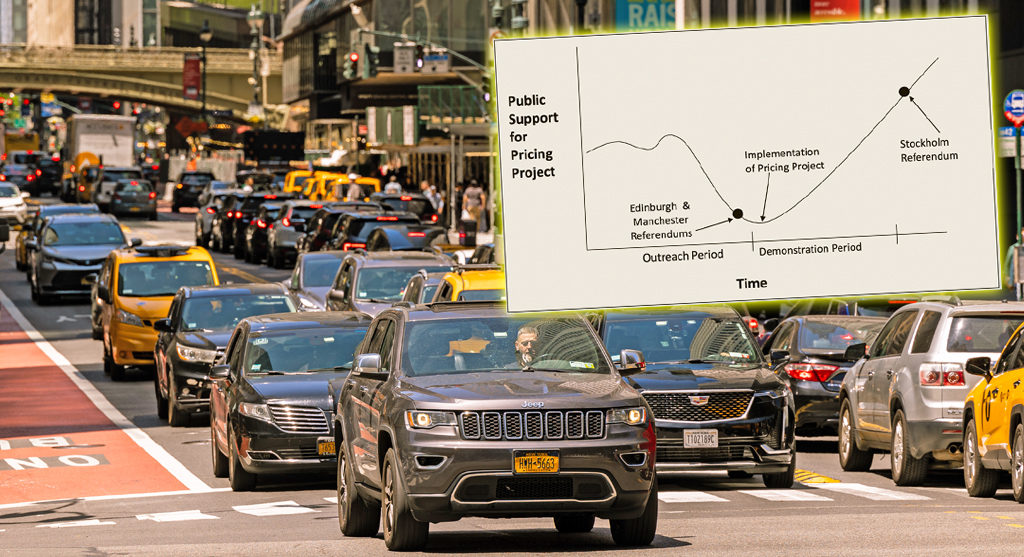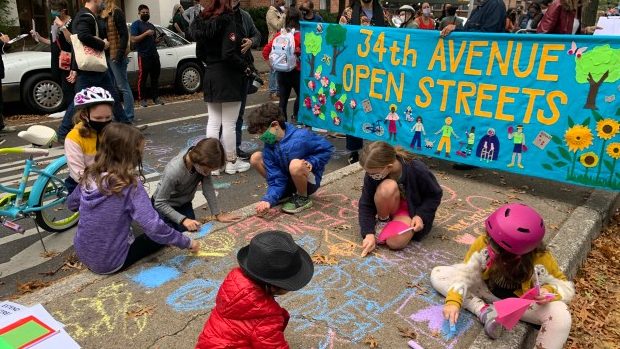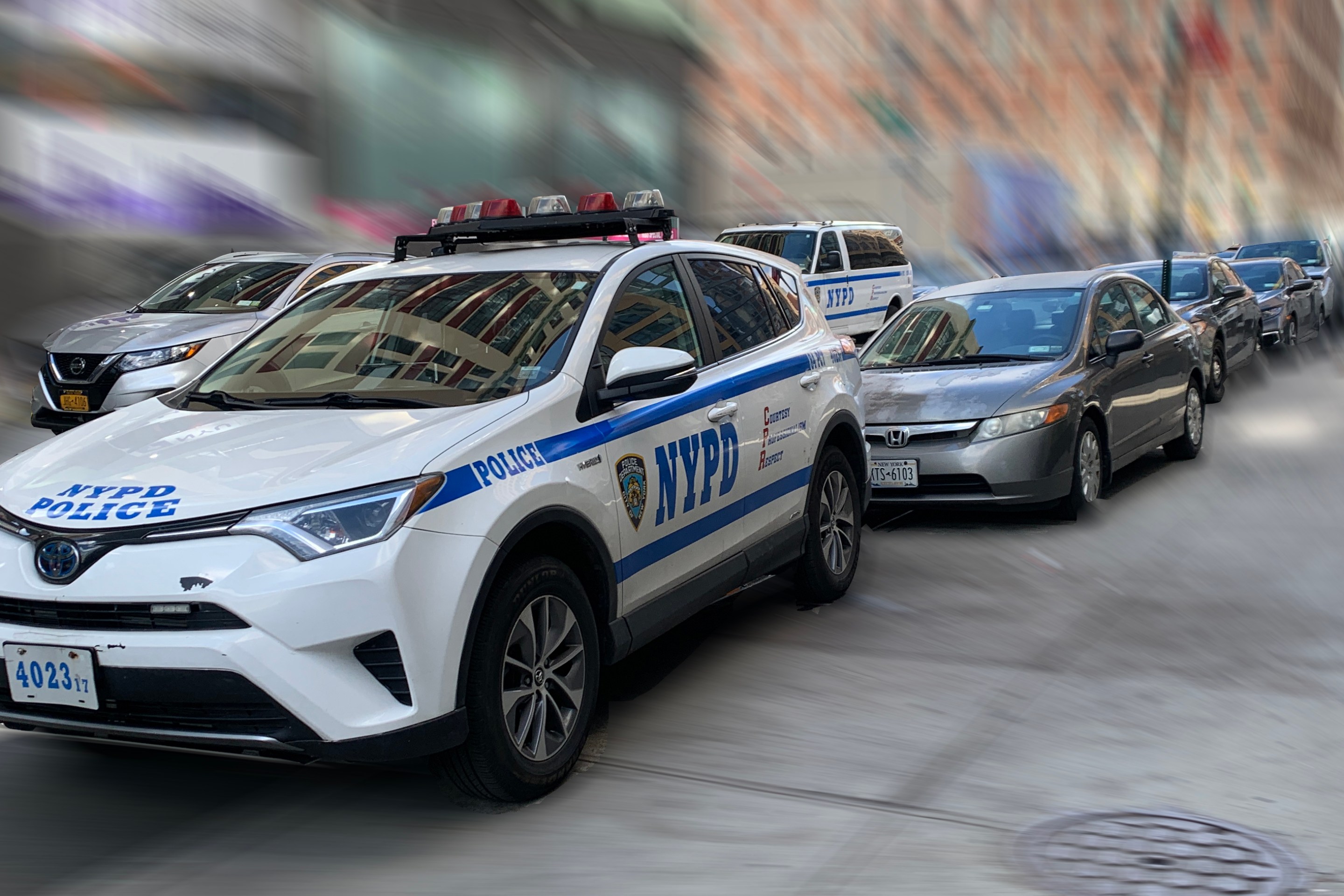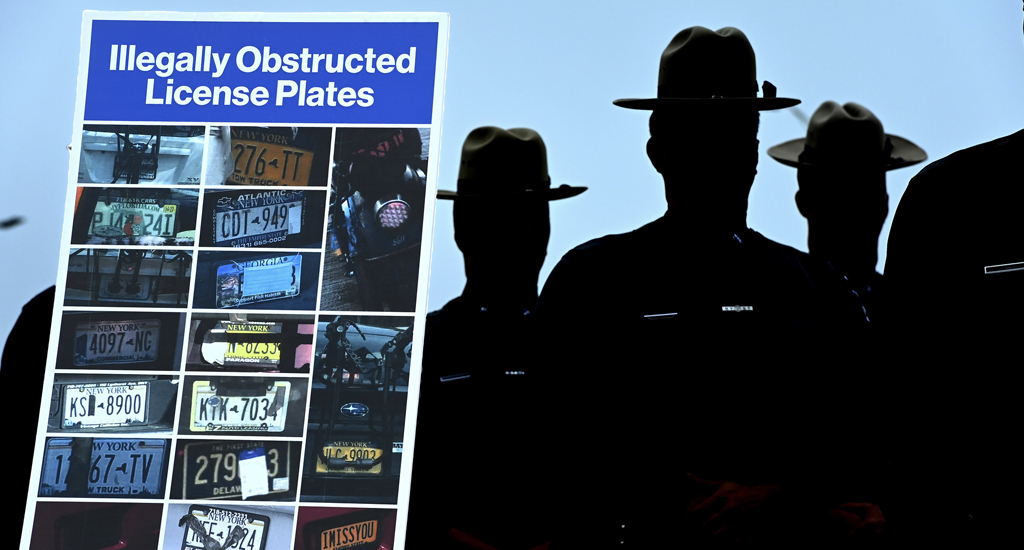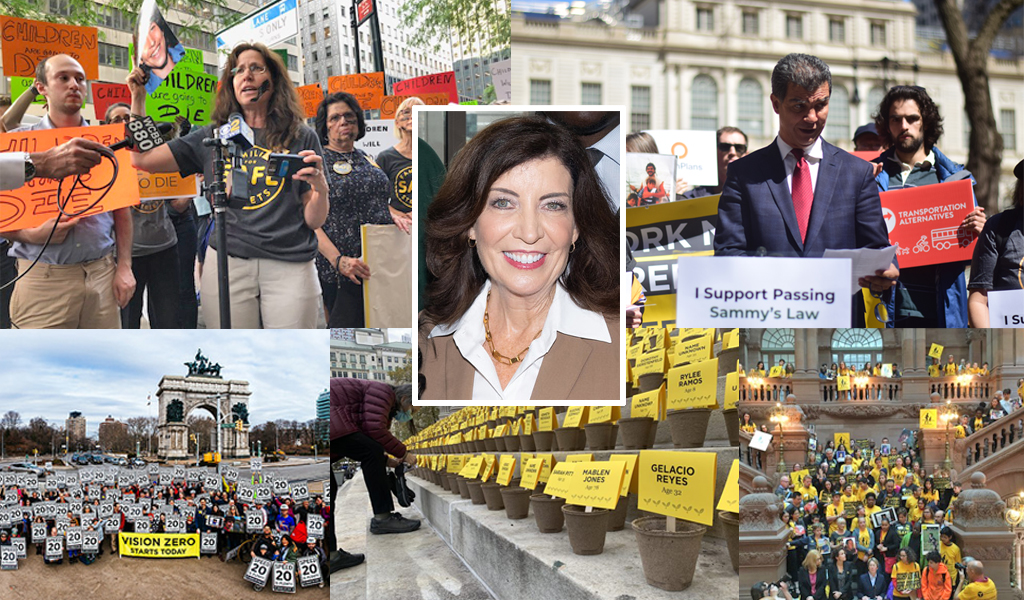Streetsblog has received multiple reports from people who were called yesterday for an opinion survey about the Prospect Park West bike lane. Notably, the question set focused specifically on the redesign of this one street, not broader issues of cycling or bike infrastructure.
We can't say whether the poll was commissioned by one of the groups that's currently suing to have the bike lane removed, but the fact that the survey was so narrowly tailored does strongly suggest that an opposition group is behind it. Public opinion surveys are expensive undertakings, and it's unlikely, for instance, that a prospective mayoral candidate would want to get the lay of the land on such a specific issue without asking about other topics of interest to voters. And we can confirm that the survey is not the work of an organization that supports the lane, like Transportation Alternatives or Park Slope Neighbors.
According to one person who was polled, the surveyor asked a series of questions about whether the respondent had biked or driven on Prospect Park West, and if the redesign is an improvement over the old configuration.
Another respondent said the survey also included several questions about demographic information, including age, race, and political affiliation. The same respondent told Streetsblog the survey call was placed to a landline.
If the survey was conducted entirely by calls to landlines, that could skew results by undercounting younger, more progressive, and less affluent residents. According to a report released by the Pew Center last fall, landline-only polls conducted during the 2008 presidential election favored Republican candidate John McCain compared to polls reaching both landlines and cell phones.
The popularity of the bike lane has been amply demonstrated at rallies and public hearings, where supporters consistently outnumber opponents by huge margins. The web survey of 3,000 Brooklynites conducted by City Council members Brad Lander and Steve Levin and Brooklyn Community Board 6 found 70 percent support for keeping the bike lane among Park Slope residents. Citywide, New York City voters approve of the expansion of bike lanes by a 54 percent to 39 percent margin, according to a recent Quinnipiac poll.
Surveyors identified themselves as working for Quantel Research, a firm based out of Ogden, Utah. Quantel was formerly known as Pacific Crest Research, and gained notoriety under that name a few years ago for conducting push polls favoring Forest City Ratner's Atlantic Yards development.
Quantel Research President Matt Hewitt would not confirm that his firm has conducted this survey or answer any questions about methodology.
Louise Hainline, a leader of the bike lane opposition group "Neighbors for Better Bike Lanes," has not returned an email query about whether her group commissioned the survey.
If you fielded this survey and can provide details about how questions were worded, drop us a line at tips@streetsblog.org.

